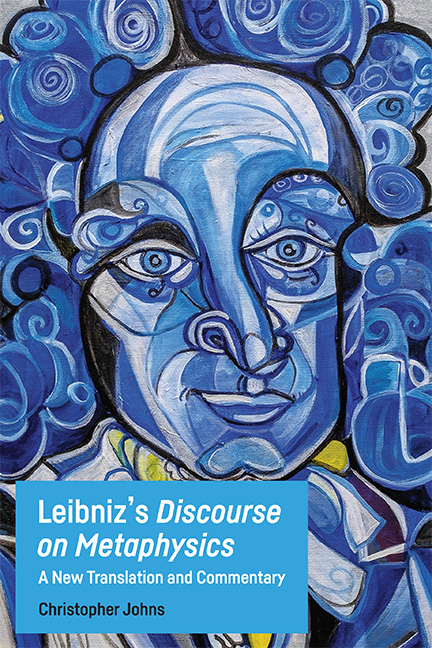Book contents
- Frontmatter
- Contents
- Acknowledgements
- Preface
- Introduction to Leibniz’s Life and Work
- Translation of the Discourse on Metaphysics
- Commentary on the Discourse on Metaphysics
- Context I Two Years of The Life and Work of G. W. Leibniz: January 1685 to December 1686
- Context II Translations of Letters Selected from 1685
- Bibliography
- Index of Names
- Index of Terms
Context II - Translations of Letters Selected from 1685
Published online by Cambridge University Press: 17 November 2023
- Frontmatter
- Contents
- Acknowledgements
- Preface
- Introduction to Leibniz’s Life and Work
- Translation of the Discourse on Metaphysics
- Commentary on the Discourse on Metaphysics
- Context I Two Years of The Life and Work of G. W. Leibniz: January 1685 to December 1686
- Context II Translations of Letters Selected from 1685
- Bibliography
- Index of Names
- Index of Terms
Summary
During 1685, the year prior to his composition of the Discourse, Leibniz wrote at least eighty-eight letters to various correspondents on political, historical, and philosophical matters. The following have been selected for (1) not having been previously translated into English (excepting one); (2) their particular relevance to the Discourse and to Leibniz’s main concerns during this time.
Letter from Leibniz to Veit Ludwig von Seckendorff
29 December 1684, Hannover. AA II, 1 N. 249 (I, 4 N. 408, one page). Latin.
Excellent is the passage in Aristotle you cited, Book VII, Eudemian Ethics, Chap. 14, and rightly said by him, that there is something acting in us more excellent than reason, something divine; although the reasons he offers for Enthusiasm and the success of the inexperienced are hardly valid. The same and more powerful arguments can be demonstrated from the nature of the mind itself. I am afraid, however, that Aristotle had a destructive opinion in mind, of which he was suspected elsewhere, concerning the universal agent intellect, which is one and the same in all men and survives after death – an opinion the Averroists have revived. But without this ruinous addition, the opinion itself is most beautiful and in conformity with reason and Scripture. God is the light that illuminates all men coming into this world. And the truth that speaks within us, when we understand the theorems of eternal certitude, is the voice of God itself, as St Augustine had also remarked.
Leibniz to the Landgrave Ernst Von Hessen-Rheinfels
29 December (8 January 1685), Hannover. AA II, 1 N. 250. French.
[…] I have still not seen either the book of F. Malebranche on ideas, or the two books of Mr Arnauld on this subject. F. Malebranche, the author of the Search after Truth, is very ingenious <> and has some very good and very solid thoughts, but there are others which are a little hyperbolic or lightly conceived. In some ways he follows the ways of Descartes, but even Descartes does not satisfy me in these matters.
- Type
- Chapter
- Information
- Leibniz's Discourse on MetaphysicsA New Translation and Commentary, pp. 316 - 329Publisher: Edinburgh University PressPrint publication year: 2023



